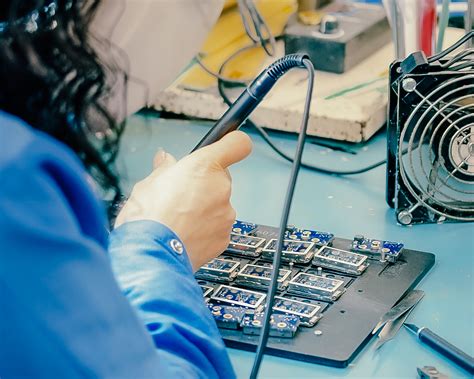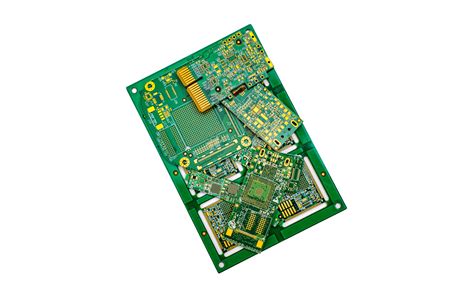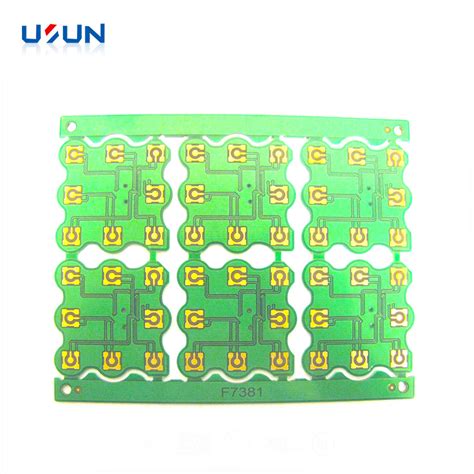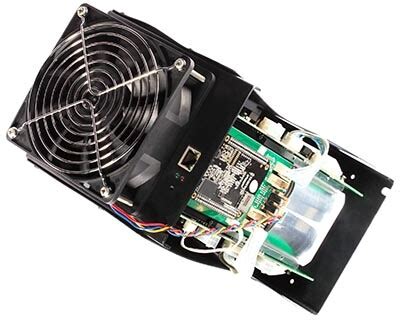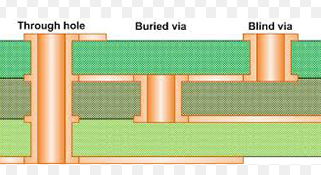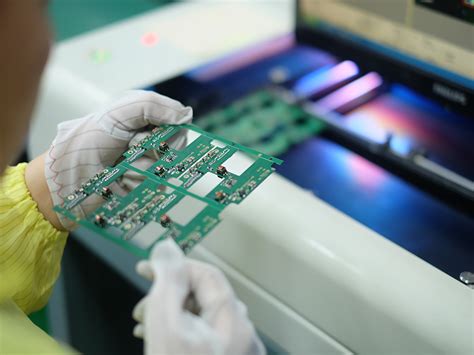Revolutionize Your Production with Turnkey PCB Assembly Services: Simplifying Electronics Manufacturing
Key Takeaways
Turnkey PCB assembly services are revolutionizing the electronics manufacturing sector by offering an all-inclusive approach that combines design, production, and quality assurance seamlessly. One of the primary advantages of utilizing a turnkey solution is the significant reduction in lead times. By outsourcing the complexities of PCBA to specialized experts, businesses can streamline their operations and focus on core competencies such as innovation and market development. Additionally, these services provide access to advanced technologies and industry best practices that facilitate enhanced efficiency in production processes. When organizations choose turnkey PCB assembly, they benefit not only from a faster time-to-market but also from improved product quality, as professionals manage each stage with precision. Ultimately, this modern approach allows companies to increase their output capabilities while maintaining high standards, ensuring that they remain competitive in a rapidly evolving landscape. The integration of design with manufacturing processes through turnkey systems exemplifies how innovation can drive success in the field of electronic assembly.
Understanding Turnkey PCB Assembly Services: A Comprehensive Overview
Turnkey PCB assembly services represent a transformative method in the field of electronics manufacturing, offering a holistic approach that combines various crucial steps, from initial design to final product delivery. The concept of turnkey implies that clients receive a fully integrated solution, minimizing the complexities associated with separate processes. This model is particularly advantageous for businesses looking to streamline their production while ensuring high-quality standards throughout. By working with seasoned experts in PCBA, companies can leverage specialized knowledge that simplifies the intricate steps involved in PCB assembly, allowing them to navigate even the most complicated projects with confidence. With access to comprehensive services that encompass design validation, material procurement, assembly, and quality assurance, manufacturers can improve their operational efficiency significantly. Such an integrated process not only speeds up production times but also substantially mitigates potential errors and delays often seen in traditional manufacturing setups. Consequently, businesses are empowered to devote their resources more effectively toward innovation, product development, and meeting market demands while entrusting the complexities of PCBA to professionals dedicated to excellence.
The Advantages of Streamlined PCB Manufacturing
Streamlined PCB manufacturing offers numerous advantages that can significantly enhance the overall efficiency and effectiveness of the production process. One of the most notable benefits is the reduction of complexity associated with traditional PCB assembly practices. By adopting a turnkey PCB assembly service, companies can leverage an all-inclusive approach where multiple stages—from design to production and quality assurance—are seamlessly integrated. This unity not only simplifies the workflow but also minimizes the chances of errors that can arise from fragmented operations.
Furthermore, utilizing a pcba service allows businesses to benefit from reduced lead times. Turnkey solutions are designed to optimize each phase of the manufacturing process, enabling faster turnaround times without compromising on quality. For example, in a typical PCB assembly, delays often occur during transitions between different stages. However, with an integrated turnkey system, such interruptions are minimized as teams coordinate more effectively.
In addition to time savings, this systematic approach means that resources are utilized more efficiently. By consolidating various functions into a single service, companies can reduce overhead costs associated with managing multiple vendors or disparate operations. Moreover, concentrating on a streamlined process invites continuous improvement practices, leading to innovations in product design and functionality.
To illustrate these benefits more effectively, consider the table below that contrasts traditional manufacturing vs. streamlined pcba processes:
| Aspect | Traditional Manufacturing | Streamlined PCB Manufacturing |
|---|---|---|
| Complexity | High | Low |
| Lead Time | Longer | Shorter |
| Cost Management | Higher | Reduced |
| Quality Assurance | Fragmented | Integrated |
| Resource Utilization | Inefficient | Optimized |
In conclusion, embracing streamlined PCB manufacturing through turnkey services not only fosters efficiency but also enhances innovation potential by allowing companies to focus on core capabilities while trusting experts to manage assembly intricacies. This shift not only improves production capabilities but also positions businesses strategically for future success in a competitive market landscape.
Integrating Design, Production, and Quality Assurance in Turnkey Solutions
The integration of design, production, and quality assurance in turnkey PCB assembly services offers a cohesive approach that streamlines the entire manufacturing process. By combining these critical elements, businesses ensure that every aspect of PCBA is seamlessly coordinated. This integration allows for real-time communication between design teams and production units, facilitating immediate feedback and adjustments. As a result, any potential issues can be identified early in the development phase, reducing the risk of costly errors during manufacturing. Furthermore, quality assurance protocols are seamlessly woven into each stage of the process, ensuring that the final product meets stringent industry standards. This holistic approach not only enhances efficiency but also promotes innovation by freeing up designers from having to worry about manufacturing constraints. Instead, they can focus on refining product designs while trusting experts to optimally manage the PCB assembly logistics. Overall, integrating these key components within turnkey solutions leads to faster turnaround times and greater overall productivity in electronics manufacturing.
How Turnkey Services Reduce Lead Times and Enhance Efficiency
Turnkey PCB assembly services have emerged as a transformative force in the electronics manufacturing sector, particularly in their ability to reduce lead times significantly and enhance operational efficiency. With a fully integrated approach to PCB assembly, these services eliminate the traditional bottlenecks that often plague the production cycle. By streamlining each phase—from initial design to PCBA and final quality assurance—companies can achieve quicker turnaround times. This efficiency is not merely a function of faster production; it also encompasses improved coordination among various teams and processes, enabling manufacturers to respond swiftly to changing market demands. Furthermore, with experts managing the complexities of PCB assembly, businesses can minimize errors and reworks—factors that typically elongate project timelines. The result is a more agile approach where companies can focus on core innovations while relying on specialized providers for seamless assembly operations. Ultimately, embracing these turnkey solutions translates to a competitive edge in an increasingly fast-paced industry.
Focusing on Innovation: The Role of Experts in PCB Assembly
In today’s fast-paced electronics landscape, the pcb assembly process has become increasingly intricate, necessitating a high level of expertise to ensure quality and compliance. The role of professionals in pcba (Printed Circuit Board Assembly) is paramount, as they bring specialized knowledge and experience that lead to improved manufacturing outcomes. These experts not only handle the technical aspects of pcb assembly, but also employ sophisticated tools and methodologies that enhance precision and reliability. By leveraging their understanding of components, layouts, and assembly techniques, they streamline production processes, enabling companies to focus on innovation rather than getting bogged down by operational challenges. In an environment where time-to-market is critical, utilizing the insights of these professionals helps in swiftly navigating potential pitfalls that may arise during production. Thus, their expertise not only ensures high-quality results but also promotes a culture of continuous improvement, positioning organizations to adapt swiftly to evolving market demands and technological advancements. The integration of expert knowledge into turnkey PCB assembly services fundamentally transforms operations, making it a vital component for companies aspiring to lead in the electronics industry.
Case Studies: Successful Implementation of Turnkey PCB Assembly
In an era where efficiency and precision are paramount, real-world examples of turnkey PCB assembly services underscore their impact on modern electronics manufacturing. One notable case involves a tech startup specializing in wearable technology. By utilizing turnkey PCBA solutions, the company was able to drastically reduce its product development cycle. They integrated design, production, and quality assurance through a single service provider, which allowed them to bring their innovative device to market three months ahead of schedule. This case exemplifies how a cohesive approach not only minimizes complexities but also fosters an environment focused on innovation.
Another compelling instance can be found in the automotive industry. A well-established manufacturer sought to develop a new line of electric vehicles. They implemented turnkey PCB assembly services that featured advanced quality control measures and streamlined production processes. The result was a significant improvement in reliability and performance of the electronic components, ultimately leading to enhanced vehicle safety features. This highlights the power of pcba services in ensuring both functionality and compliance within highly regulated sectors.
“Efficiency is doing things right; effectiveness is doing the right things.”
This adage resonates with businesses that have successfully adopted turnkey solutions, as it emphasizes the need for effective collaboration between engineers and manufacturers. By outsourcing the complexities of PCB assembly to specialists, companies can redirect their resources towards essential areas such as market research and customer engagement.
Lastly, a global telecommunications firm faced challenges with international supply chain management. By partnering with a provider offering comprehensive turnkey PCBA services, they managed to streamline their logistics while maintaining high quality standards across various regions. This integration not only reduced lead times but also enhanced overall flexibility in production capacity—demonstrating that such partnerships are crucial for businesses aiming to stay competitive in fast-paced markets.
These case studies showcase that embracing turnkey PCB assembly services can lead not only to operational efficiency but also open new avenues for innovation—ultimately driving success in an increasingly competitive landscape.
Future Trends in Electronics Manufacturing and Turnkey Solutions
As the demand for faster and more efficient production techniques continues to escalate, the pcb assembly industry is undergoing significant transformations. The integration of turnkey PCB assembly services is becoming increasingly prevalent, as businesses seek solutions that can streamline their manufacturing processes. These services not only provide a comprehensive approach to pcba but also leverage advanced technologies such as automation and artificial intelligence. The result is a notable decrease in production times and an enhancement of overall quality.
Looking ahead, one of the emerging trends in electronics manufacturing is the shift towards greater customization in pcb assembly processes. Clients are no longer satisfied with one-size-fits-all solutions; they desire tailored approaches that cater to specific project requirements. Turnkey services are adapting accordingly, enabling manufacturers to produce specialized pcba designs that meet individual needs effectively.
Moreover, sustainability is becoming a priority in the industry. Future turnkey solutions will likely focus on eco-friendly materials and processes, significantly reducing waste and improving energy efficiency. This trend aligns with global efforts to promote sustainable manufacturing practices while maintaining rigorous standards for quality assurance.
Ultimately, the evolution of turnkey PCB assembly services reflects an industry increasingly dedicated to innovation, efficiency, and sustainability. As these trends continue to develop, businesses that embrace them will undoubtedly enhance their competitive edge in the ever-evolving landscape of electronics manufacturing.
Steps to Choose the Right Turnkey PCB Assembly Service for Your Business
Selecting the ideal turnkey PCB assembly service is a critical decision that can significantly influence your manufacturing efficiency and product quality. To begin with, it is essential to assess your specific project needs. This involves considering the complexity of your PCB assembly and the required specifications for your PCBA. Understanding whether you need additional services, such as design support or testing, can help in selecting a provider that aligns with those requirements.
Next, evaluate the expertise and experience of potential partners. Look for companies with a proven track record in handling projects similar to yours and inquire about their quality assurance processes to ensure that they maintain high standards in their operations. Additionally, it is beneficial to request references or case studies that demonstrate their success in prior collaborations.
Another vital factor is communication and responsiveness. A strong partnership necessitates transparent communication channels; thus, a service provider that prioritizes client engagement will likely lead to a smoother production process. Furthermore, consider their capabilities regarding scalability—whether they can handle increases in demand as your project progresses.
Finally, cost-effectiveness plays a crucial role but should not be the sole determining factor. Instead, ensure you are getting value for your investment by balancing costs with quality and service offerings. By following these strategic steps, businesses can make informed decisions when selecting the right turnkey PCB assembly service to enhance their manufacturing operations and foster innovation in their product development efforts.
Conclusion
In summary, adopting turnkey PCB assembly services is not merely a strategic choice but a transformative step for businesses aiming to enhance their production capabilities. By leveraging these comprehensive solutions, companies can navigate the complexities associated with PCB assembly and PCBA more efficiently. The integration of design, production, and quality assurance within a single framework allows for unprecedented levels of coordination and precision. Additionally, the reduction in lead times significantly impacts the overall speed of product development, ensuring that businesses remain competitive in an ever-evolving market landscape. As a result, firms can shift their focus toward innovation and growth while entrusting the intricate details of PCB assembly to experts in the field. This not only fosters a more agile manufacturing environment but also ultimately drives projects toward successful outcomes. Embracing this approach opens new pathways for advancement within electronics manufacturing and positions organizations to capitalize on future opportunities.
FAQs
When considering turnkey PCB assembly services, many questions arise regarding their implementation and benefits. One common inquiry relates to what exactly PCB assembly entails. In essence, PCBA refers to the process of soldering all electronic components onto a printed circuit board (PCB) to create a fully operational unit. This comprehensive service often includes everything from initial design to final quality assurance, eliminating the need for clients to manage multiple vendors. Another frequent question involves the timeframes associated with these services. By employing streamlined processes, turnkey solutions significantly reduce lead times, allowing businesses quicker access to market-ready products. Additionally, potential clients may wonder about the cost benefits; integrating design, production, and quality assurance under one roof can lead to reduced expenses and increased value for money spent on production processes. Overall, understanding these dynamics can assist manufacturers in making informed decisions regarding adopting turnkey PCB assembly services for their projects.

